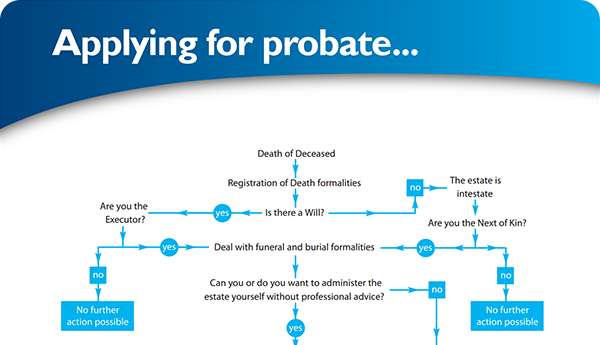Probate Practitioners Basildon

Probate Practitioners Basildon
The probate proces can be complicated, especially after a loved one passes away. Learning to deal with grief and life without them can be incredibly tough and having to deal with a mountain of paperwork at the same time can be overwhelming.
That's why many people turn to us here at The Probate Bureau. We aim to shoulder the whole burden of winding up an estate in the most empathetic way possible - providing the best service at a very fair and reasonable fixed fee price. It's our goal to save families money and to administer estates in sometimes half the time and half the cost of most other providers, because we know it's better to have one less thing on your mind. If you're in need of some help, give us a call on 0808 256 2366.
What is Probate?
The word probate is a term used throughout England and Wales to describe all of the legal and finance processes that are involved in dealing with someone’s property, money and possessions when they pass away.
Before anything can happen with their possessions, the named executor in the Will needs to apply for probate.
When probate has been granted through a notice known as a Grant of Probate or a Letter of Administration, the executor will have full legal control over the deceased person’s assets and can begin to claim, transfer, sell and distribute them.
If the deceased passed away without a properly written Will, the executor will have to turn to the law to determine who should receive each item. The law sets out some rules call the ‘rules of intestacy’.
What is Involved in the Probate Process?
The probate process can involve a lot of tricky legal, tax and financial work but can be broken down into steps:
Investigating the Estate
The first step to probate is identifying all of the deceased’s assets, which can include property, investments and their physical possessions, and all of their liabilities (debts ranging from loans to utility bills). This will help you to determine the value of the estate and what needs to be distributed to relatives. This will also help you to determine whether you need probate or not.
Going Through the Relevant Forms
If you are looking to apply for a grant of representation, be prepared to fill out a good few different forms and sign a letter of truth. Some of the forms you will need to fill in includes:
- A probate application form, also known as a PA1
- An inheritance tax form - this will have to be filled in, no matter what the value of the estate is, even if you don't think any tax is owed.
These forms will then need to be sent to your local probate office, along with the Will, the application fee and the death certificate and you'll have to sign a Letter of Truth declaring that the information you've provided is true to the best of your knowledge.
Granted Probate
After you have been issued a Grant of Representation by the Probate Registry, you will be able to sell any of the deceased’s assets, settle their liabilities, pay the final estate administration expenses and settle any further tax from HMRC.
Final Steps
As long as there aren't any problems or complicating factors that prevent the distribution of the estate, the final step will simply involve transferring the assets to the beneficiaries and distributing the balance of the estate funds.
When is Probate Required?
Probate will be required when:
- The deceased owned property
- A Grant of Representation is required by the bank holding the deceased’s assets. This will normally only happen when the amount in the account is over the specific threshold set by the bank.
How Can The Probate Bureau Help?
Here at The Probate Bureau, we are fair and reasonable probate practitioners in Basildon. Whether you need help with applying for probate, writing a Will or need advice about finances, we’ll be more than happy to help.
Though, if you feel confident enough to start of the process yourself, before you do anything else, be sure to take a look at our 7-step checklist. It will help you through the process and highlight any warning you may encounter on the way.
For some helpful probate advice, please feel free to call us on 0808 256 2366. We’ll never treat you like just another client. We understand that each and every client we speak to is unique and all of us are completely trained to take care of you exactly how we wish to be treated ourselves. We’ll be able to tell you what you should do, and even more importantly, everything you should avoid doing before you start out the probate process.
Share This Post
Recent posts
- Probate Delays and How to Speed Things Up in 2026 By Admin , 03/02/2026
- Inheritance Tax Planning: 2026 Allowances and Exemptions Guide By Admin , 03/02/2026
- Making a Will at Christmas: Why the Holidays Are the Right Time By Admin , 23/12/2025
2015 Archive
2016 Archive
2018 Archive
2019 Archive
2020 Archive
0 Archive
- December 2 posts
2023 Archive
- July 10 posts
2026 Archive
- February 13 posts
Blog Categories
Find your way through the probate maze
Click here to follow our step-by–step probate process guide
×



